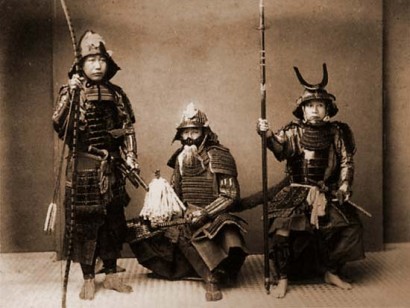 A samurai is a type of Japanese warrior that was very present in the tradition of this country from the Middle Ages until its disappearance in the 19th century.
A samurai is a type of Japanese warrior that was very present in the tradition of this country from the Middle Ages until its disappearance in the 19th century.
From an etymological point of view, the word samurai means "the person who helps." In terms of their primitive historical sense, these warriors were initially hired by the rulers for a defensive purpose. However, with the passage of time they became a military group, a kind of elite caste or estate, which came to have great power, although from the eighteenth century they gradually lost their social privileges.
Expert warriors with extensive capabilities
The samurai were not ordinary warriors, but had great knowledge of different martial arts, stood out for their skill as archers and in the use of the katana and dressed in very flexible armor.
Japanese cinema and literature have been inspired by these warriors to tell stories full of romance and symbolism. Even during World War II the Japanese government launched a campaign for the army to adopt the principles of authentic samurai.
The code of honor
The most unique dimension of a samurai is not his bravery and prowess as a warrior but his code of values, known as bushido.
Bushido is a very rigid set of principles and rules that a good samurai must strictly adhere to. In this code, loyalty, discipline and respect are fundamental values. However, honor has a special meaning. The honor of a samurai is something sacred, it could be said that his honor acts as a judge, to the point that if he performs a dishonorable act he has the obligation to commit suicide through a specific ritual (harakiri is the word used in the West to mention suicide, but actually the correct term is seppuku).
 The sense of duty in a samurai is equally strict and, in fact, not only must he comply with the rules but also his sincerity has to be total and absolute.
The sense of duty in a samurai is equally strict and, in fact, not only must he comply with the rules but also his sincerity has to be total and absolute.
Unknown qualities of the Samurai
Although these mythical warriors of Japanese culture are known for their skills as soldiers and their mentality, it should not be forgotten that they were also cultured men (they practiced calligraphy, performed the tea ceremony and were lovers of art). There are some historical testimonies that show that women could also be samurai, although this circumstance was exceptional. Finally, a curiosity: homosexuality was accepted with normality, something that reminds us of the Theban warriors of ancient Greece.









